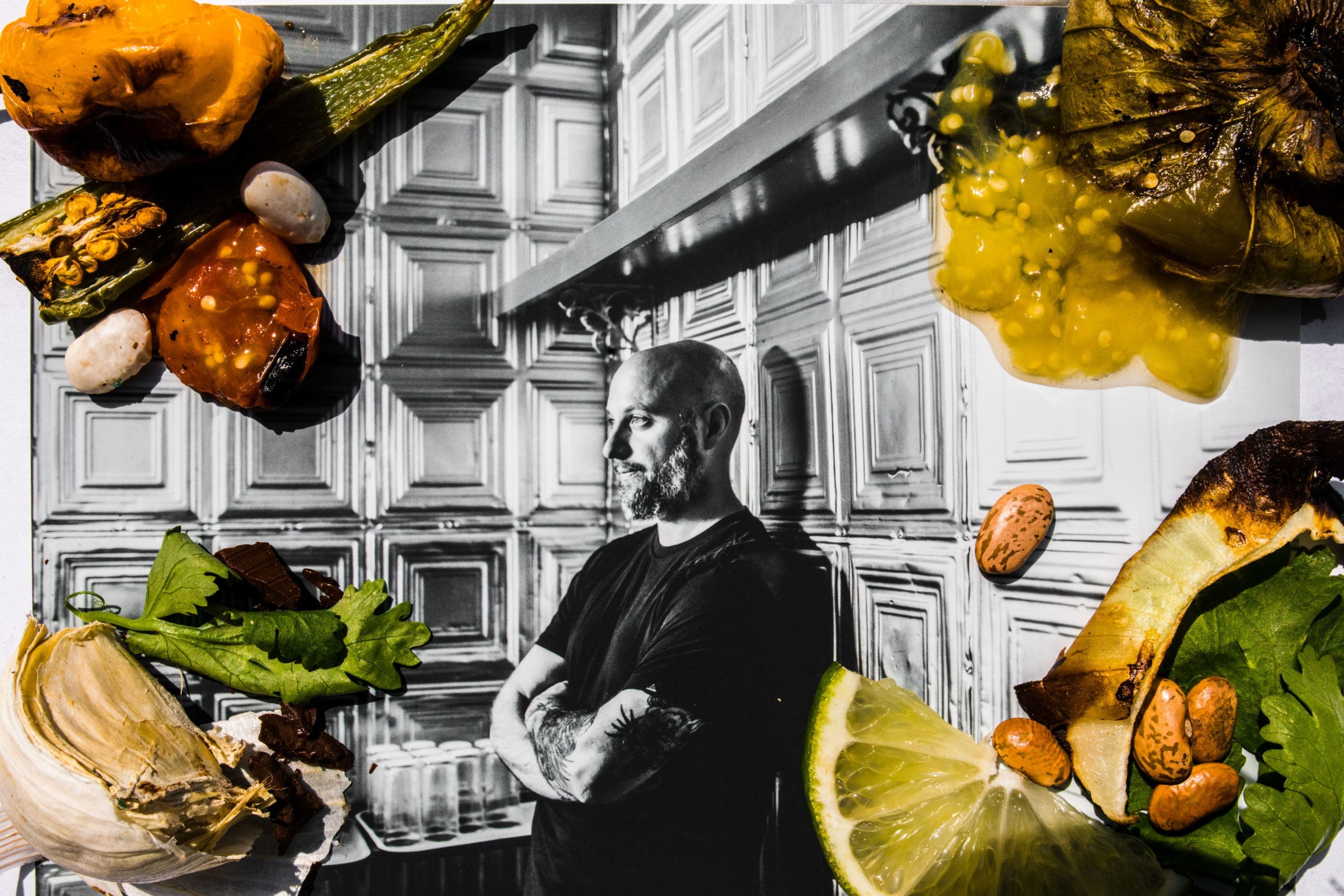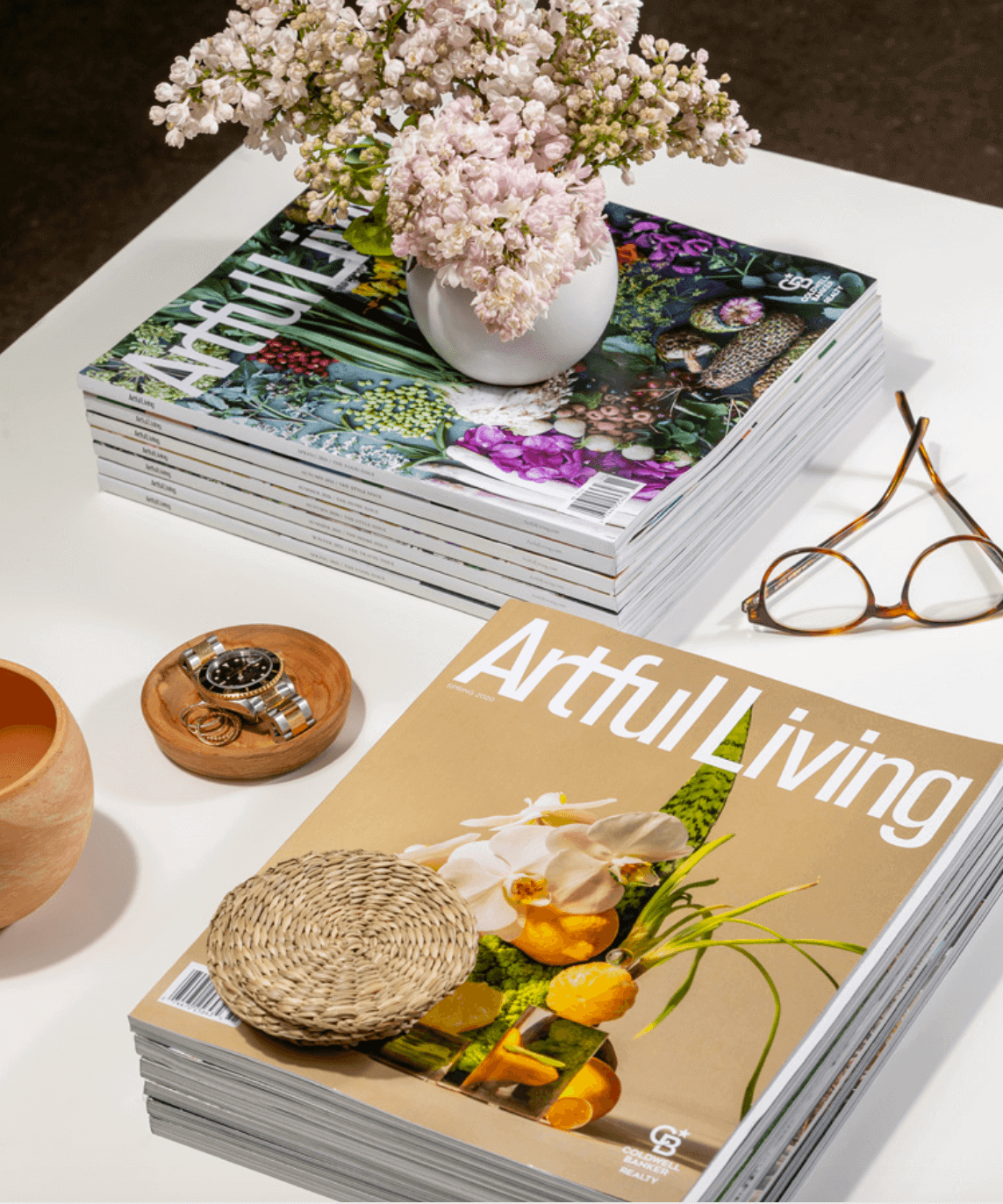How do you put into words the feeling of hopelessness? That gut-dropping, mouth-drying, clammy-hands feeling of complete and utter disbelief. That moment in time that you feel like you’ll never be able to crawl out of. That feeling that breaks your spirit, your heart and your resolve. I had those feelings day in and day out for two years without fail.
In 2017, just the year before, I had achieved so many of my lifelong goals. I was leading a team of 75 at Surly Brewing in Minneapolis. I was nominated for a James Beard Award, my industry’s highest accolade. Our restaurant, Brewer’s Table, was recognized by Food & Wine as one of the top 10 in the country. I was working with a group of the most dedicated, passionate, like-minded, heart-on-their-sleeve people I’d ever had the pleasure of knowing.
But within months, it was over. Done. The owners gave no answers, and by August of 2017, Brewer’s Table was closed. I realized that my identity was wrapped up in what I was doing, in my food and my team. Even now, writing this, my heart pulls at my chest thinking about them. Beyond the recognition, the accolades and the awards, there was this collaborative heartbeat. We believed in one another, worked for one another and became a family for one another.

Photography by Brandon Werth
After the restaurant closed, I tried to reconnect with myself. I visited my family in St. Louis. I hiked through Yosemite with a close friend. I traveled back home to the Yucatán. When you go through a life-changing event, you’re supposed to go somewhere and find yourself, right? Well I didn’t find myself, but at least I got the travel part down.
I did come to the realization that I couldn’t see myself working for anyone else ever again. I needed to be responsible for my future, the decisions and the well-being of others. I had plans to launch a new restaurant in Minneapolis. I had a partner, a business plan and interested investors. People were promising big things, but when the time came to call on those promises, they always came up short. Eventually my partner and I went our separate ways, and that was that.
At the same time, while my career path was so uncertain, my personal life changed forever. When I first met Jill, I immediately knew that this woman would be my wife, and three months after our first date, we were married. Despite all of this happiness, I was still lost professionally. My compass was spinning; I had no idea where I was supposed to be or what I was supposed to do. I was depressed, and it affected my relationship with Jill. She has an uncanny ability to remain patient with life and navigate situations with such grace — skills I’m working on. We decided that whatever was thrown our way, we could rise from our knees and face it together. I realize now, in more ways than one, that Jill saved my life.
In March of 2018, shortly after meeting Jill, I heard of a job in La Crosse, Wisconsin, a small college town with a surprisingly developed medical community. A young entrepreneur with an impressive amount of family capital was opening a distillery and asked me to consult on the kitchen. After a few months of working together, he asked if I’d consider moving there to be his partner and help him grow the restaurant scene. He seemed to have a genuine vision for his city and needed someone on the culinary side to help see his plans through.
He caught me in a moment of desperation; I didn’t have any leads on new work and was continually coming up short in Minneapolis. After much deliberation, Jill and I decided to take him up on his offer. While I was hesitant to move to a city with a quiet food scene and so little diversity, I was drawn by the opportunity to put a new food destination on the map, to work with some of the best organic produce in the country and to finally have ownership of a project. I should have listened to my gut.

On my very first day, it became painfully clear I’d made a mistake. This man with his grandiose plans had no ability to make them happen. It was the first time in my life that I felt an acute stress response, and it was telling me to run like hell. But Jill and I had already moved all of our belongings to La Crosse, we had signed a lease, and we were committed to settling down in this new home. We decided to try to make it work, believing we could help this person. The reality that followed, however, was 11 months of empty promises, delusional visions of grandeur, and all-out lies. We were stuck.
Here’s where the hopelessness really set in. I looked back at the past 22 years of my career and everything I had accomplished. Now I was stuck in a city that had no future for me, working for — not with — someone who was the definition of toxic. I had told myself I would never work for someone else again, yet here I was, working in a restaurant that felt like a ghost town and turning out food that barely had a glimmer of what I used to create. I started comparing myself to my peers, feeling desperate that I wasn’t doing enough, that I would be forgotten. I was used to managing a determined team at one of the country’s best restaurants, creating food that excited people. I felt like I had failed.
I struggled daily with not knowing what to do, who to turn to or how to crawl out of this hole. A thought would flicker in my brain, nagging at me, telling me to give up on life. But now it was more than just me; I had a wife and a son on the way. As hard as it was for me, I knew it was even harder for Jill to watch me struggle. The thought of giving up on your family and yourself is tortuous. It forces you to look deep within yourself and convince yourself that you can do this, that you can keep going. I had to keep putting one foot in front of the other and fight off the daily demons, the lost dreams, the failed goals, the what ifs and should haves.

By June of 2019, the situation was only getting worse. I’d finally had enough. I confronted my partner’s family and told them verbatim, If my wife weren’t eight months pregnant and I didn’t need the insurance, I would have told you all to go fuck yourselves a long time ago. I was fired three days later. I felt like the weight of the world had been lifted off me. While I was now faced with figuring out how to support my family, I was also incredibly relieved to shed the stress of that situation and leave it behind.
Despite having two college degrees and years of high-level experience in my industry, I was struggling to put food on even my own table. I had to work within the constraints of my state unemployment so that my wife and son could keep their health insurance. I had to hustle. When you’re a husband and a father, you want to give your family the world. When you can’t, it crushes you. And I can attest that living week to week is about as stressful as it gets. I don’t know how families do this every day, year after year.
Flash back to September of 2018, when I was visiting the Twin Cities and reconnected with a chef friend, Ben Rients. We traded war stories and talked at length about how the culture of the industry needed to change. A few weeks later, I got a text asking if I’d ever thought about returning to Minneapolis. That was the day we became partners. Although I was still working in La Crosse, we slowly started forming a plan to open a restaurant and, more importantly, we started talking about our vision for the culture we wanted to create. Ben has no idea how life-changing that text was for me and how important he has been for my well-being. He provided a light at the end of the tunnel.
This February, I was driving up 38th Street in Minneapolis on my way back to La Crosse and happened to see a For Lease sign in the window at the old Blackbird Cafe. I couldn’t call Ben fast enough. Four months later, our restaurant, Petite León, was underway.

After 24 years in this business, I am finally getting the opportunity to make this one my own. I have been given a gift and a responsibility far greater than just being a chef. I have the chance to create an environment where people can thrive, learn, teach, be supported and hopefully become successful. Each of us has a path to get where we are, and that path isn’t always easy. The past year has left me feeling exposed and emotionally drained, but it has also pushed me to think hard about who I am and how I can effect change. My hope is that I can create a space where vulnerability is looked upon as a strength.
We are opening our restaurant amidst a global pandemic and national political turmoil. As I write this, I’m recovering from COVID-19, my smell and taste hindered, my energy completely drained. It has forced me to slow down when all I want to do is push forward. It’s far from how I imagined I’d open my first place, but our resolve is strong. As we get closer to opening, I’ve had to accept that I can’t have my family fly out, have my friends gather in celebration or even have the rush of that first service. I’ve always envisioned my wife and son stopping by to sit at the bar for a quick bite and to say hi to daddy before heading home. We know that won’t be happening anytime soon, but we’re taking it in stride. We aren’t going to let it stop us from achieving what we set out to do.
My journey in the restaurant business has not been an easy one. But this industry has also been the setting for some of the happiest moments of my life. Perhaps that’s why I’ve held onto this dream so tightly; it’s demanded so much yet given me so much. It has allowed me to persevere and grow as a person. I could have given up so many times, but I feel it is my time to give back. I want my son to grow up knowing his father was a good man, despite all his failures, mistakes and shortcomings. And I don’t know any other way to do that but through food. This obsession has taken me to the edge and back, but how do you stop caring about something that has become part of your identity? It’s more than a job. I’m a chef to my core, and I don’t see how I could be anything else.


